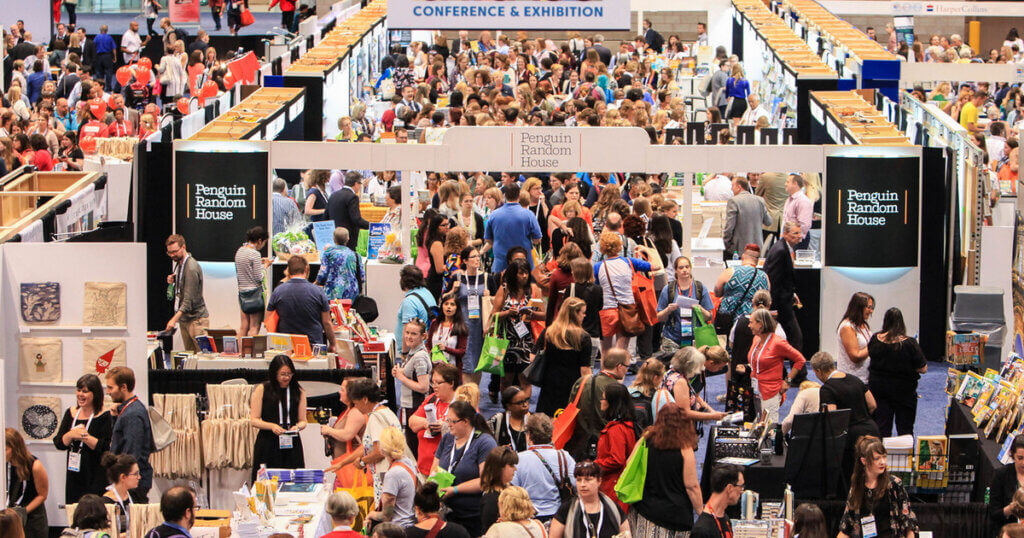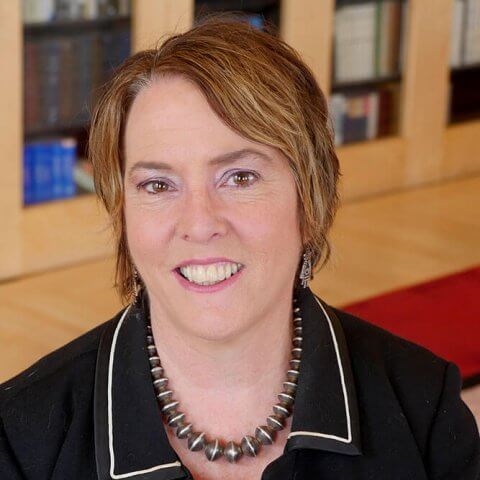UCSF Library’s Research and Copyright Librarian Peggy Tahir and Zuckerberg San Francisco General’s Clinical Research Librarian Jill Barr-Walker, presented their work over the summer at the American Library Association’s (ALA) Annual Conference & Exhibition. This conference brings together thousands of librarians and library staff, educators, authors, publishers, friends of libraries, trustees, special guests, and exhibitors. Attendees had the opportunity to learn more about educational programming, updates in the field, relevant legislation and policies, and participate in discussions about the roles and transformations of libraries.
Presenting at the conference
Peggy coordinated and co-presented a session on K-12 copyright 101 for school librarians. She discussed Creative Commons licensing, copyright best practices, and shared useful resources on copyright with attendees. She also presented the poster, “Reaching Diverse Populations Through Targeted Library Services,” highlighting UCSF collaborations with health providers and learners in low and middle-income countries (LMICs) and programs encouraging minority high school and undergraduate students to pursue health sciences careers. The poster also highlighted research collaborations between librarians and investigators on diversity, equity, and inclusion or on minority health projects in the United States and in LMICs. Ultimately these collaborations lead to continuing engagement, published papers, and greater exposure of librarians as active collaborators.
Jill presented two posters. The first, “Creating a police-free library: new abolitionist roles for library workers,” showed how librarianship grapples with structural racism in the profession. The poster presentation describes the UCSF Library’s journey to learn about and practice abolitionist services and unique perspectives as an academic and health sciences library situated in clinical and academic settings. The second poster presentation, “Sexual harassment in the library: understanding experiences & taking action,” showed the results of a census of 1,610 non-student employees across the University of California library system. The census aimed to measure sexual harassment experiences quantitatively and qualitatively, identify opinions of library staff regarding institutional support around sexual harassment, and produce policy and training recommendations based on this data.
In addition to presenting at the conference, Peggy and Jill noted some highlights from attending the conference.
Peggy’s highlights
- Attending the Rally for the Right to Read. Librarians shared stories about facing book bans, and I learned about the great advocacy work that ALA spearheads to push back against censorship.
- Hearing about essential skills for learners in the ACRL Distance and Online Learning Section’s program, “Learners of 2030: Preparing for Literacies and Skills of the Future”. This program touched on the importance of news literacy skills, digital preservation skills, viewing digital literacy through the lens of digital justice, and learning empathy through deep listening.
- Discussing hot topics in copyright with the ACRL’s Copyright Discussion group, including controlled digital lending (most libraries aren’t doing it), scanning and sharing old theses or dissertations, and the impact of artificial intelligence on copyright.
- Answering copyright questions at the Copyright Help Booth. This booth was sponsored and staffed by the Copyright Legislation, Education and Advocacy Network (CLEAN) committee members.
- Listening to Amanda Gorman and Christian Robinson discuss their collaboration “Something, Someday” in the closing session.
Jill’s highlights
- Learning about library sustainability efforts through the Sustainable Libraries Initiative and the Triple Bottom Line approach. Both prioritize socially equitable, environmentally sound, and economically feasible work.
- Talking with public, academic, and special library workers about abolition and our efforts to create police-free library spaces.
- Hearing first-hand experiences of librarians across the United States dealing with book bans and restrictive legislation. The support and dedication shown by our colleagues was inspiring.
- Meeting author Kelly Yang at the Chinese American Librarians Association (CALA)’s 50th-anniversary celebration and getting a signed copy of her newest book, “Finally Seen“!
- Meeting library school students and early-career library workers. Their irreverence, humor, passion, and commitment to change in our profession is inspiring.
Feature image adapted from the American Library Association (ALA) via Flickr.

